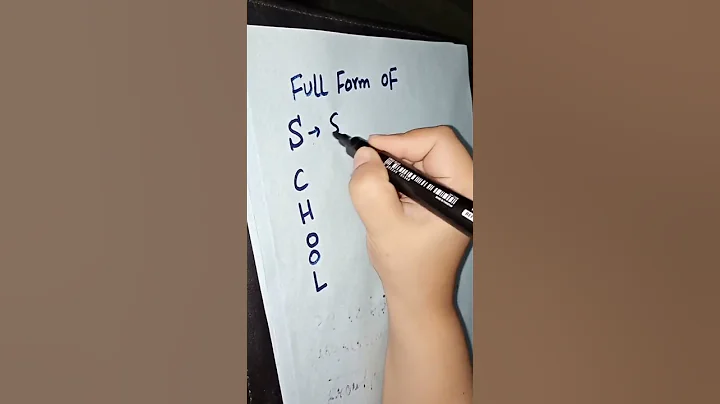Lunar calendar September 9th is the traditional Double Ninth Festival . In 1989, our country designated September 9th as the Elderly Day. Combined with the Double Ninth Festival, it has become a festival of respecting, respecting, loving and helping the elderly. .
Nowadays, the issues of lifetime support and inheritance of the elderly have become the focus of society. Taking Beijing courts as an example, so far in 2020, it has accepted more than 26,000 alimony disputes and more than 160,000 inheritance disputes. In the upcoming " Civil Code ", laws and regulations regarding the elderly also occupy a certain space. Especially regarding the provisions on support and inheritance issues, what breakthroughs and changes have been made in the Civil Code?

Support related provisions
Case : Cui and his ex-wife have two children, Cui A and Cui B, and Yu and her ex-husband have two children, Wang and Cui Bing. Cui and Yu got married in 1992. After marriage, they lived together and jointly raised Cui Jia and Cui Bing. Cui and Yu claimed that their two children had not paid alimony and related expenses for hospital treatment. Cui Jia argued that due to the complex family structure, Cui and Yu did not fulfill their due support obligations when they were children, so they were unwilling to pay alimony and medical expenses.
Court decision : In accordance with Article 27 of the "Marriage Law of the People's Republic of China", the rights and obligations between the stepfather or stepmother and the stepchildren raised and educated by them shall be subject to the relevant provisions of this law on the relationship between parents and children. In this case, although Cui and Yu belong to a reorganized family, and Cui A and Cui Bing are stepchildren, they still have to abide by the provisions on the support obligations of parents and children in terms of their support obligations to their parents. Article 21 of the Marriage Law stipulates that children have the obligation to support and support their parents. When children fail to fulfill their support obligations, parents who are incapable of working or have difficulties in living have the right to require their children to pay alimony. Article 19 of the "Law on the Protection of Rights and Interests of the Elderly" stipulates that caregivers shall not refuse to perform support obligations on the grounds of giving up inheritance rights or other reasons. If the caregiver fails to fulfill his support obligations, the elderly have the right to require the caregiver to pay alimony. Even if parents fail to fulfill their child support obligations when they are young, the children still have to bear the child's obligation to support their parents when they become adults. In specific cases, the payment of alimony and medical expenses must be based on the income and specific living conditions of the parents and children, as well as the number of people who have the obligation to support the parents.
Interpretation of the maintenance provisions of the Civil Code : Article 1072 of the Civil Code reiterates the relationship between stepparents and children, and the legal provisions have not changed from before; Article 1074 continues Article 28 of the "Marriage Law of the People's Republic of China" stipulates that the custody and support obligations between grandparents and grandchildren stipulate that the grandchildren and maternal grandparents who are able to afford the support have Support obligations; Article 1043 clearly stipulates that families should establish good family traditions, promote family virtues, and pay attention to the construction of family civilization. Family members should respect the elderly, love the young, and help each other. This is the first time that the establishment of good family traditions has been written into law. It is a full reflection of my country's core socialist values. It is also a legal way to appeal to the whole society about the importance of family harmony and caring for the elderly.
Highlights of the inheritance section
The inheritance section of the Civil Code has four chapters and 45 articles. Most of the legal provisions in the inheritance section are inherited from the "Succession Law of the People's Republic of China" and its judicial interpretations. Among them, 16 legal articles are substantive modifications to existing laws and their judicial interpretations, and a total of seven new legal articles are added. It is these changes that constitute the highlights of the successor section of the Civil Code.
1. Expand the scope of legacy .
The "Civil Code" changes the enumerated legal provisions of the "Succession Law of the People's Republic of China" and adopts a general legislative approach, which covers legal private property to the greatest extent and is more in line with the increasing types of property and With the continuous enrichment of property forms, this regulation method can also include virtual property, such as game accounts, virtual currencies, etc.
[Legal Article Link] Article 1122 Inheritance is the legal personal property left behind when a natural person dies.Inheritance that cannot be inherited in accordance with the provisions of the law or due to its nature shall not be inherited.
2. Improve the reasons for heirs to lose inheritance rights . On the one hand, there are two new situations in which heirs lose their inheritance rights. That is, "concealing a will" and "using fraud or coercion to affect the deceased's testamentary freedom." These two improvements are not only based on the purpose of strengthening the protection of the deceased's will, but also a summary of actual cases. On the other hand, a new heir clemency system was added. This is a major feature of the inheritance section of the Civil Code, which embodies the "human touch" of the law. It is also a manifestation of legislators' call for family harmony and full respect for the inheritance wishes of the deceased.
[Legal link] Article 1125, paragraphs 1 and 2: An heir who commits any of the following acts shall lose the right to inherit: (1) Intentionally killing the deceased; (2) Fighting for the inheritance Killing other heirs; (3) Abandoning the decedent, or mistreating the decedent in serious circumstances; (4) Forging, tampering with, concealing or destroying wills in serious circumstances; (5) Using fraud or coercion to force or hinder the decedent from establishing, changing or To withdraw the will is a serious matter. If an heir commits the acts in Items 3 to 5 of the preceding paragraph and truly shows repentance, and the deceased expresses forgiveness or later lists him or her as the heir in the will, the heir shall not lose the right to inherit.
3. Expand the scope of subrogation and inheritance of .
The "Civil Code" adds "children of the decedent's brothers and sisters" to subrogation inheritance. This provision expands the scope of legal heirs in subrogation inheritance. Such legal changes are a response to the increasing number of one-child families in contemporary society and can reduce the situation of inherited property being confiscated to the state.
Xiao Li's uncle never married and had no children. Xiao Li's grandparents and parents died one after another, leaving only Xiao Li and his uncle to depend on each other. Then, if Xiao Li's uncle passes away, Xiao Li can inherit his uncle's property.
[Legal Article Link] Article 1128, Paragraph 2: If the decedent’s brothers and sisters die before the decedent, the children of the decedent’s brothers and sisters shall inherit by substitution.
4. Added new will form.
With the development of society and the advancement of technology, the ways for the elderly to make wills have become more diverse. The Civil Code follows the trend of the times and adds "printed wills and videotaped wills" to the previous self-written wills, written wills, recorded wills, oral wills and fair wills. The Civil Code stipulates the validity of a printed will and clarifies the formal requirements, that is, "two witnesses are present, and both the testator and the witnesses sign their names and date." Video wills and audio wills are stipulated in the same legal provision, which also clarifies the formal requirements for both, that is, "both witnesses, the testator and the witness must record the name or portrait and the year, month and day."
[Legal Article Link] Article 1136: The printed will must be witnessed by two or more witnesses. The testator and witnesses should sign each page of the will and indicate the year, month, and day.
Article 1137: A will made in the form of audio and video recording shall be witnessed by more than two witnesses. The testator and witness shall record their name or portrait, as well as the year, month and day in the audio and video recording.
5. Cancel the priority effect of notarized will .
If the deceased makes multiple wills or their contents are conflicting, which will will be recognized by the law? Although the "Succession Law of the People's Republic of China" stipulates that the last will shall prevail, it gives priority to notarized wills, that is, only through notarization can the will be changed. This will bring a lot of trouble to the testator, and is more likely to go against the testator's true wishes. Therefore, the Civil Code completely deletes the rule that the validity of the notarized will takes precedence, and the last will is regarded as the will recognized by law. .
[Legal Link] Article 1142: The testator may revoke or change the will he has made. After making a will, if the testator carries out civil legal actions contrary to the contents of the will, it will be deemed as a revocation of the relevant contents of the will. If there are several wills and their contents are conflicting, the last will shall prevail.
planning | organization publicity group, audit office (research office)
contribution | Hao Sijia
pictures | network
editor | Li Xuejie





















